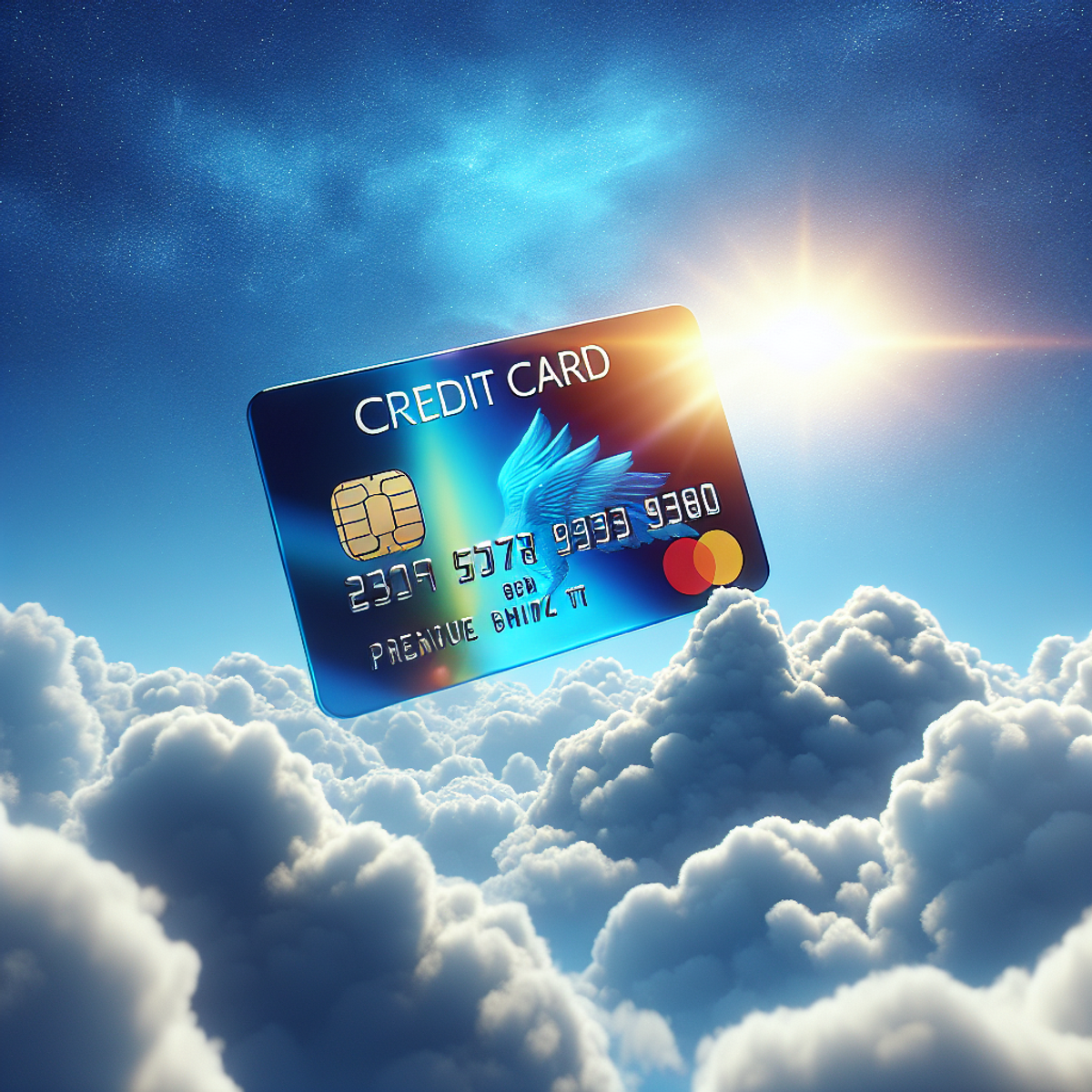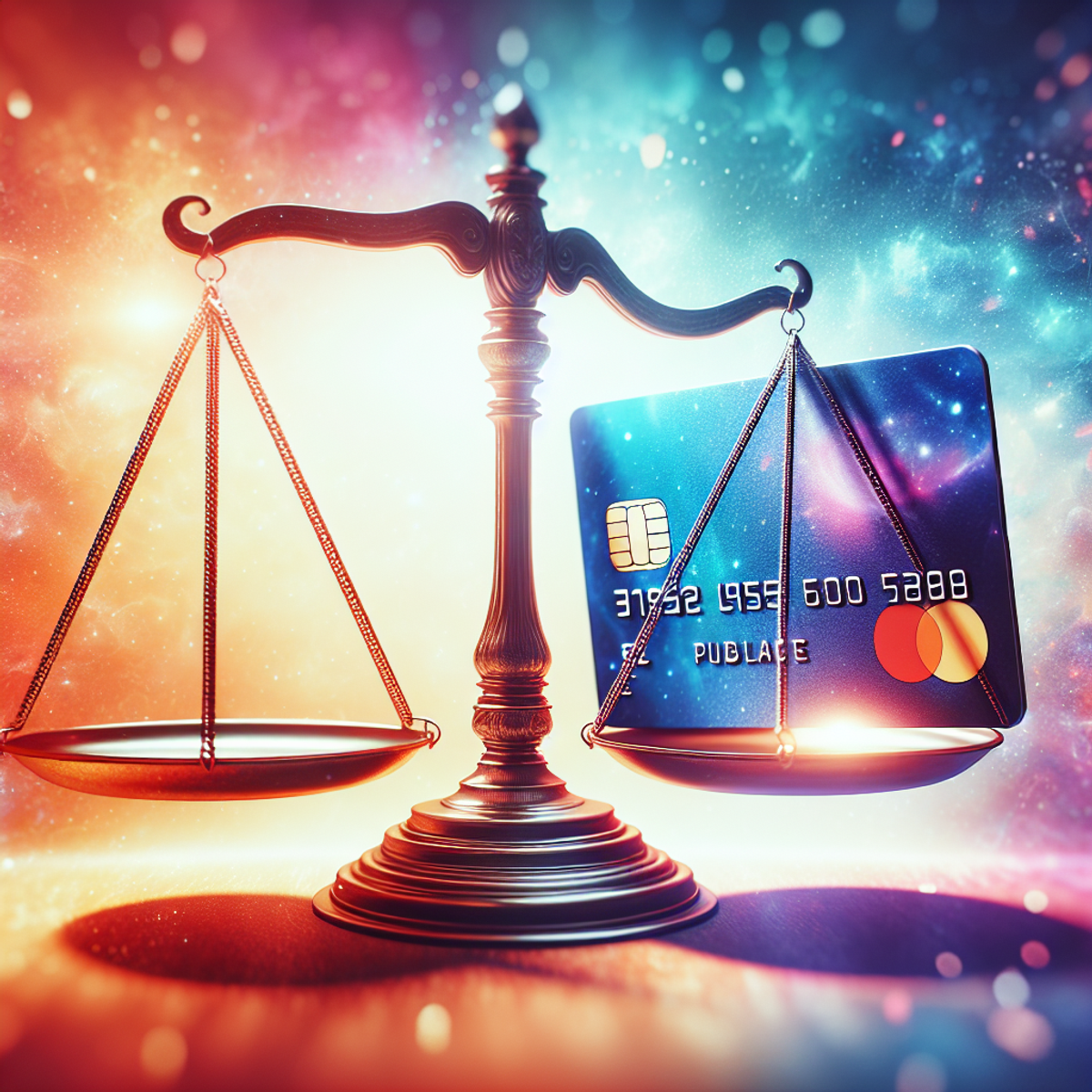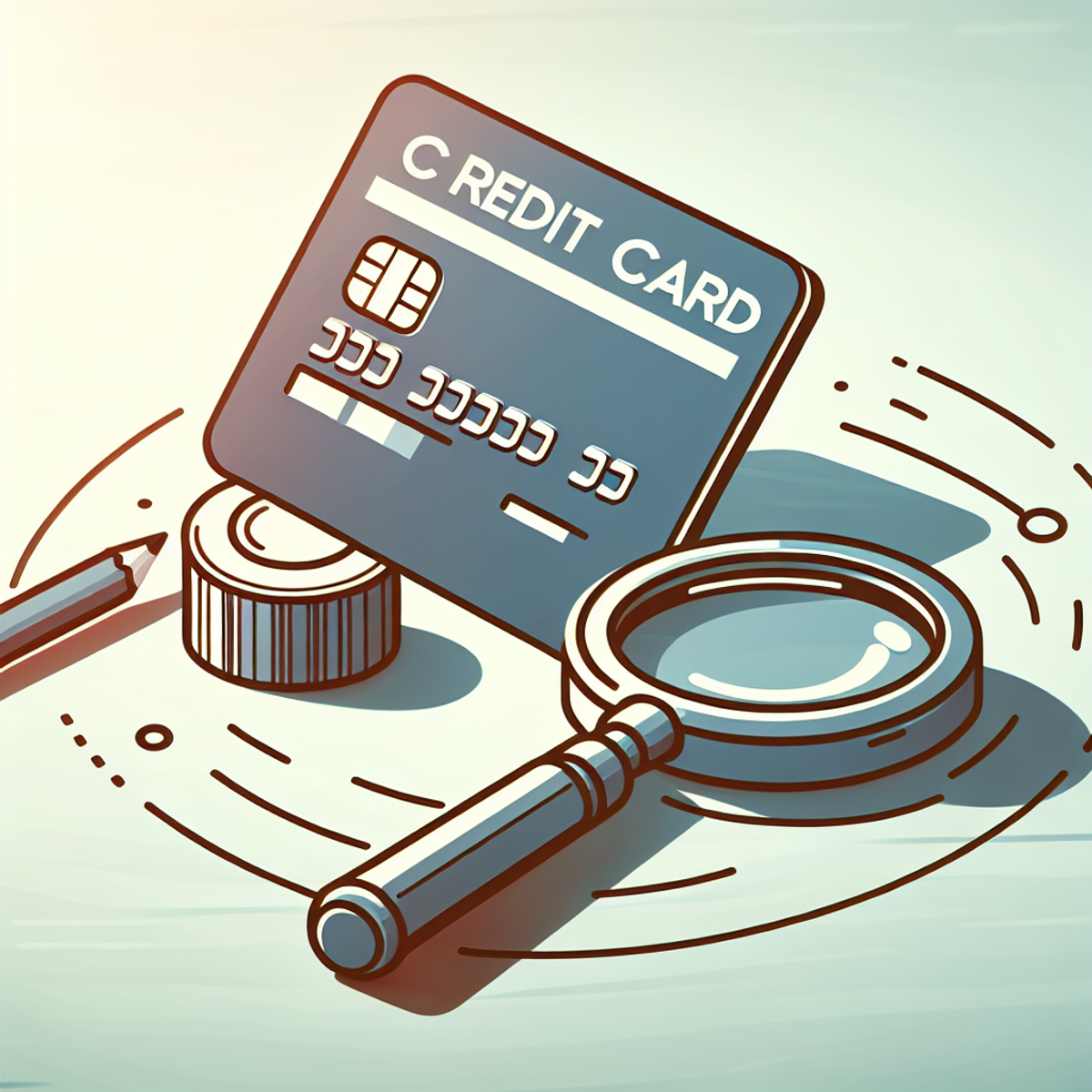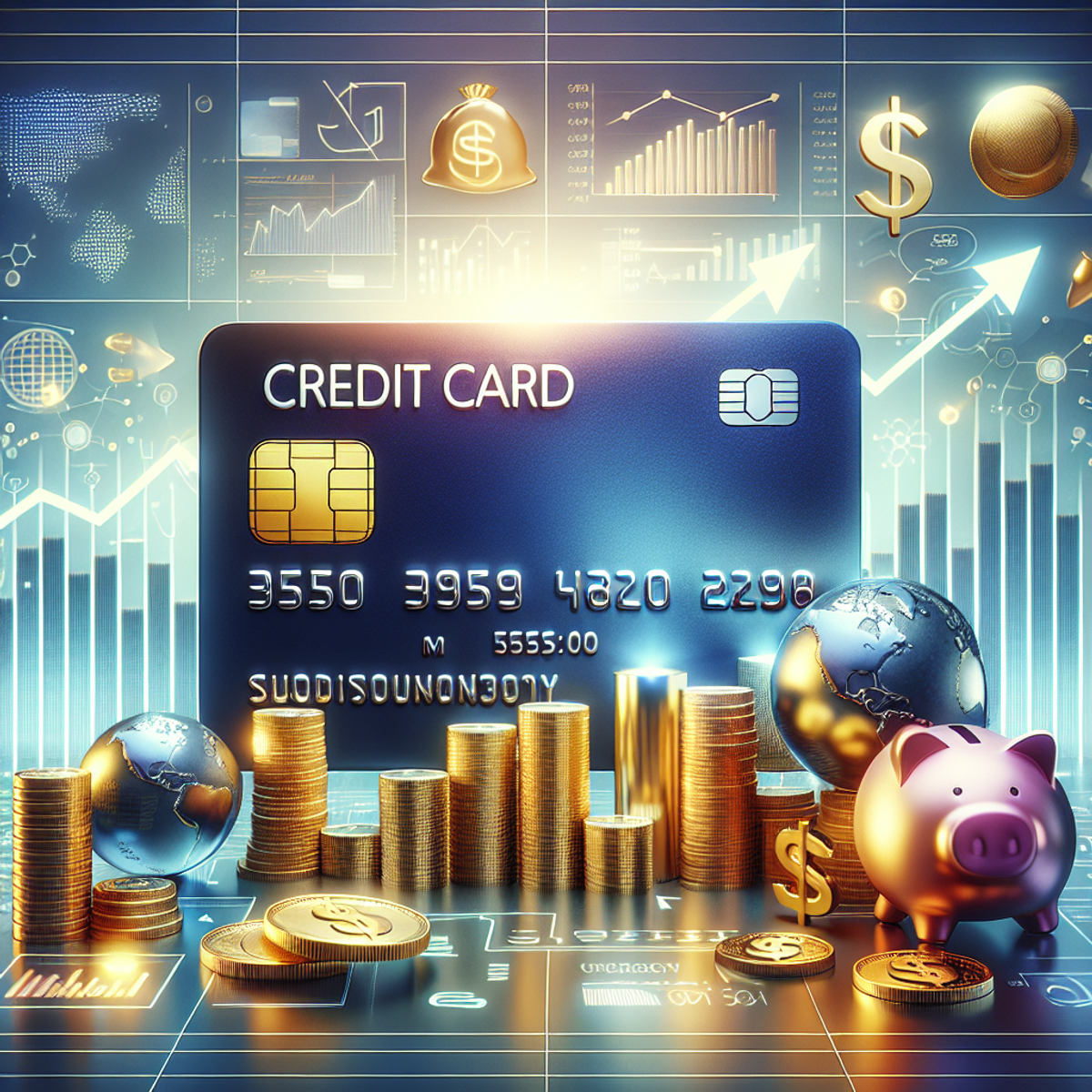Introduction
Entering the world of credit can seem like a daunting task, but it’s an essential step towards establishing a solid financial foundation. Selecting your first credit card is a crucial decision that requires careful consideration. Start on the right foot by understanding how credit cards work and assessing your financial situation.
In this article, we will guide you through 10 key factors to consider when choosing your first credit card:
- Understanding the basics of credit cards
- Taking into account your credit limit and history
- Considering the perspective of credit card issuers
- Building your credit responsibly
- Navigating different types of cards to find one that suits your needs
- Understanding terms and fees using the Schumer Box
- Developing responsible credit habits from day one
- Understanding the impact of credit utilization on your financial health
- Age considerations for establishing credit
Equipped with this knowledge, you’ll be better prepared to make an informed choice and set yourself up for a successful financial future. Let’s dive in!
1. Understand the Basics of Credit Cards
Credit cards are a popular form of payment, offering both convenience and a means to build credit history. But what exactly is a credit card?
Essentially, a credit card represents an agreement between you, the cardholder, and the card issuer, typically a bank. The issuer lends you money for purchases, and you promise to repay it.
How Credit Cards Work
It’s crucial to remember that using a credit card is essentially borrowing money. Each time you make a purchase, the amount is added to your card balance. You’ll then receive a statement at the end of your billing cycle with an option to pay off the balance in full or carry some over to next month (known as ‘revolving’ your balance). However, any balance not paid by the due date will incur interest charges.
Difference Between Credit Cards, Debit Cards, and Mobile Payment Apps
Now how do credit cards differ from debit cards and mobile payment apps?
- Debit cards draw funds directly from your checking account when you make a purchase. Essentially, you’re spending money you already have rather than borrowing it. There’s no bill to pay later and no interest charges.
- Mobile payment apps like Apple Pay or Google Wallet allow you to make transactions using your smartphone. These apps can link to either your debit or credit card, drawing funds accordingly.
Each of these options has its benefits and drawbacks. Debit cards and mobile payments linked to them can help control spending but don’t contribute to building credit history like credit cards do.
In essence, understanding these basics is your first step in navigating the world of credit cards confidently.
2. Take Your Credit Limit and Credit History into Account
Selecting a credit card involves more than just the allure of rewards or low interest rates. Two crucial factors to consider are your credit limit and credit history.
What is a credit limit?
The credit limit, simply put, is the maximum amount you can borrow using your credit card. It’s vital to choose a limit that aligns with your financial situation and available funds. Overspending can lead to debt accumulation, negatively impacting your credit score.
How does credit history affect your credit limit?
Your credit history plays a significant role in determining the credit limit you’re offered by card issuers. If you’ve previously demonstrated responsible borrowing habits, issuers are more likely to offer you a higher limit. Conversely, having no credit history or a poor one can result in lower limits or even application denial.
Understanding credit bureaus and credit scores
Credit bureaus collect information about your borrowing and payment habits to create your credit history. This data is then used to calculate your credit score, a three-digit number that indicates your creditworthiness. A high score can open doors to better interest rates and higher limits.
Tips for managing your credit limit and building a positive credit history
Building a positive credit history should be a priority when using any form of borrowed money, including credit cards. Here are some tips to help you make informed decisions:
- Choose a manageable credit limit based on your available funds.
- Understand that your credit history and score affect the offers you receive from card issuers.
- Familiarize yourself with how credit bureaus gather and use information about your borrowing habits.
- Prioritize building a positive credit history to increase future borrowing opportunities.
These considerations will guide you in selecting a suitable first credit card and set you up for successful financial management.

3. Consideration from Credit Card Issuers’ Perspective
When you apply for your first credit card, it’s crucial to understand the perspective of the credit card issuer. They evaluate your application based on several key factors:
Credit History
This is a detailed report of your debt and repayment history. Issuers use this information to assess how reliably you’ve repaid debts in the past. If you’re applying for your first credit card, this may be limited.
Income Stability
Regular and reliable income is another significant aspect that issuers consider. It gives them confidence that you have the means to repay any credit used.
Debt-to-Income Ratio (DTI)
This ratio is a measure of your total monthly debt payments versus your gross monthly income. A lower DTI points to greater financial stability, which is attractive to issuers.
Existing loans
The presence of other loans, like student loans or mortgages, can impact the decision-making process. Too many existing obligations might raise concerns about your ability to manage additional debt.
Remember, credit card issuers are looking for indications that you’ll be a responsible borrower and will be able to pay back any borrowed money on time. Hence, being aware of these factors can guide you in preparing a stronger application for your first credit card.
4. Building Credit with Care: Best Practices for Beginners
Embarking on the journey of building credit requires a strategy, particularly if you’re starting without any credit history. Here are key practices to establish a strong financial base:
Start with a Secured Credit Card
A secured credit card is designed for individuals looking to build or rebuild their credit. You deposit a sum of money as collateral, which typically becomes your credit limit. This card functions like any other credit card, but the security deposit minimizes risk for the issuer. With consistent, on-time payments, you’ll begin to build a credit history.
Become an Authorized User
Being added as an authorized user on a family member’s credit card can be a smart move. This allows you to benefit from the primary cardholder’s credit habits without being legally responsible for the charges. Ensure that the issuer reports authorized user activity to the credit bureaus for it to impact your credit score.
Practice Responsible Credit Use
Cultivate financial discipline by using your credit card for small purchases and pay off the balance in full each month. This habit not only avoids interest charges but also sends positive signals to the credit bureaus about your reliability as a borrower.
Understand the Importance of Credit History
A robust credit history paves the way for future loans at better interest rates and is crucial when applying for mortgages or car loans. Lenders trust borrowers who have demonstrated responsible credit management over time.
Employ Strategic Credit-Building Tools
Besides secured cards and authorized user status, consider other tools such as credit-builder loans or services that report rent and utility payments to credit bureaus. These methods can supplement your efforts in establishing a credible financial footprint.
By adhering to these guidelines, you foster healthy financial habits and lay the groundwork for a stellar credit profile. Moving forward, it’s essential to maintain these practices as they will continue to shape your financial reputation and opportunities.
5. Choose Wisely: Finding the Right Type of Card for Your Needs
Credit cards are not one-size-fits-all. They come in various types, each suited to different needs and lifestyles. Two specific kinds worth noting are store cards and student cards.
Store Cards
These are credit cards issued by retailers, often enticing customers with exclusive deals and discounts. For instance, you might receive a percentage off your first purchase or earn points for every dollar spent at the store, which can later be redeemed for merchandise. If you shop frequently at a particular store, a store card could provide significant savings.
Student Cards
Student cards are designed specifically for college students. These cards usually have lower credit limits and simpler reward structures, making them easier to manage for young adults just starting their credit journey. Some student cards offer rewards for good grades or cashback on common student expenses like textbooks and dining.
When deciding on a card type, it’s crucial to consider your specific financial needs and spending habits. Ask yourself questions like: “Where do I spend most of my money?” or “What benefits would be most useful to me?”
If you’re a student who spends a lot at the campus bookstore or frequently eats out, a student card offering cash back on these categories could be beneficial. Alternatively, if you’re a loyal shopper at a specific retailer, their store card might offer you the best value.
Remember that the right card is one that aligns with your financial needs and helps improve your credit health in the long run.
6. Understanding Card Terms and Fees: Decoding the Schumer Box
When you’re exploring credit card options, you’ll encounter the Schumer Box—a standardized table on credit card disclosures that provides a clear snapshot of a card’s terms, fees, and rates. Created for consumer protection, this box is your go-to section for understanding the financial implications of using a specific credit card.
Here are the key details to focus on:
APR (Annual Percentage Rate)
This is the interest rate you’ll pay if you carry a balance on your card. It can vary by the type of transaction, such as purchases, cash advances, or balance transfers.
Annual Fee
Some credit cards charge a yearly fee for their use. Weighing the benefits against this cost is essential; sometimes the rewards justify the fee.
Penalty Charges
Be aware of potential fees for late payments, going over your credit limit, or returned payments. These can add up and impact your finances.
By reviewing each element within the Schumer Box carefully, you ensure no surprises when it comes to the costs associated with your chosen credit card. Take time to compare these details across different cards as they can significantly influence your decision. Remember, a lower APR or minimal fees can save you money in the long run.
7. Embracing Responsible Credit Habits from Day One
With your first credit card comes a great responsibility. The key to maintaining financial stability and building a positive credit history is anchored on responsible credit card use. This implies, above all, avoiding falling into the trap of debilitating debt.
Making Timely Payments
To start with, it’s crucial to make timely payments. The importance of this cannot be overstated. Late payments can lead to penalty fees and an increase in your interest rate, not to mention a negative impact on your credit score. Ensure you never miss a due date by setting up automatic payments or reminders on your calendar.
Keeping Balances in Check
In addition to making timely payments, keeping balances in check is another pillar of responsible credit card use. While it might be tempting to swipe your card for every purchase, remember that the amount you owe directly affects your credit score. It’s recommended to keep your balance low and avoid maxing out your card.
Consider these practices:
- Pay off your full balance each month whenever possible
- If you can’t pay in full, always make at least the minimum payment
- Keep track of your expenses and budget accordingly
- Don’t spend more than you can afford to repay
Adopting these habits will not only help you manage your finances effectively but also set the stage for a healthy credit history right from day one.

8. The Impact of Credit Utilization on Your Financial Health
Credit utilization plays a significant role in determining your credit score. It measures the proportion of your total credit card balances to your overall credit limits. Here’s what you should keep in mind:
What is Credit Utilization and How is it Calculated?
Your credit utilization ratio is calculated by dividing the total amount of credit you’re currently using by the total amount of credit available to you. For example, if your credit limit is $5,000 and you have a balance of $1,000, your credit utilization ratio would be 20%.
How Does Credit Utilization Affect Your Credit Score?
Here’s how your credit utilization ratio can impact your credit score:
- Lenders generally prefer borrowers who have a credit utilization ratio below 30%. Higher ratios may indicate that you’re relying too much on borrowed money and could struggle to repay debts, potentially resulting in a lower credit score.
- Keeping your credit utilization low demonstrates responsible credit management. It shows lenders that you’re not heavily dependent on borrowing and are likely to make timely payments.
Tips for Managing Your Credit Utilization
To maintain a healthy credit score, consider implementing the following strategies:
- Monitor your balances regularly: Keep track of how much you owe on each of your credit cards and compare it to your available credit limits.
- Set up balance alerts: Most credit card issuers offer email or text notifications when your balance reaches a certain threshold. This can help you stay aware of your spending and avoid exceeding your desired credit utilization ratio.
- Pay down balances before the billing cycle closes: Paying off a portion or the full amount of your balance before the statement closing date can help lower your reported credit utilization.
- Increase your credit limit wisely: Requesting a higher credit limit can potentially improve your credit utilization ratio, as long as you don’t use the additional credit to make unnecessary purchases. Be cautious not to increase your spending habits simply because you have a higher credit limit.
Remember, it’s essential to use credit responsibly and avoid accumulating more debt than you can comfortably manage. By following these best practices, you can ensure that your credit utilization works in your favor, contributing to a stronger credit score for any future borrowing requirements.
9. Age Considerations for Establishing Credit
When you want to get your first credit card, it’s important to know how your age affects your eligibility. The age requirement is a big factor in credit card applications.
Age Requirement for Credit Cards
In the United States, there are specific rules about how old you have to be to get a credit card. According to the Credit Card Accountability Responsibility and Disclosure (CARD) Act of 2009, if you’re under 21 years old, you have two options:
- Show that you have enough income to pay back what you borrow on the card.
- Have someone else, like a parent or guardian, co-sign the card application with you.
These rules are meant to protect young adults from getting into too much debt before they’re financially ready.
Benefits of Starting Early
If you meet the age requirement and can get a credit card on your own, it can be a good idea to start building credit as soon as possible. Here’s why:
- Your credit history length makes up 15% of your FICO score calculation.
- Having a longer credit history can help improve your credit score.
- Starting when you’re younger gives you more time to build a long credit history.
What if You’re Older?
Maybe you’re older and haven’t had a credit card before. Don’t worry – it’s never too late to start! But there are a few things to keep in mind:
- Without any previous credit history, it might be harder to get approved for certain types of cards.
- You might need to consider getting a secured credit card, where you have to put down a deposit as collateral.
No matter how old you are, it’s important to develop good habits with your credit from the beginning.

10. How to Make Informed Decisions When Choosing a Credit Card
When it comes to finding the right credit card, having access to reliable information is key. That’s where resources like Forbes Advisor can be incredibly helpful. They offer expert advice and in-depth information on a wide range of financial topics, including credit cards.
Utilizing Resources for Decision Making
Here are some ways you can leverage these resources to make informed decisions:
- Use credit card comparison tools: These tools allow you to compare different credit cards side by side, considering factors such as features, benefits, and fees. By using them, you can easily identify the card that aligns with your financial habits and goals.
- Read expert reviews: Reputable financial websites often publish detailed reviews of various credit cards written by experts. These reviews can provide valuable insights into the pros and cons of each card, as well as user experiences. Taking the time to read them can help you get a better understanding of what to expect.
- Utilize credit card calculators: Calculators specifically designed for credit cards can be incredibly useful when trying to evaluate different options. They allow you to simulate different scenarios and estimate potential costs and savings. Whether you’re trying to calculate interest charges or compare reward programs, these calculators can give you a clearer picture.
In addition to these resources, it’s also important to consider the banks that issue credit cards.
Exploring Bank Offerings
Different banks offer different cards, each with their unique features and benefits. Here are some reputable banks you might want to explore:
- Chase: Known for their extensive range of credit cards catering to different needs, including rewards, travel, and business cards.
- American Express: Offers a variety of cards with robust rewards programs.
- Capital One: Provides a selection of cards for all credit levels with various perks.
- Bank of America: Offers options from student cards to premium rewards cards.
- Citi: Features a diverse lineup of credit cards with generous rewards programs.
It’s essential to understand that each bank has its own criteria for approval and terms and conditions for their credit card offerings. Therefore, make sure to read the fine print and understand all the details before making your decision.
Keeping an Eye on Your Credit Score
In addition to this, keep an eye on your credit score as it plays a significant role in determining your eligibility for certain credit cards and the terms you may be offered. Platforms are available that offer free score monitoring services, allowing you to keep track of your score over time. This way, you’ll always know where you stand financially and how it may impact your credit card options.
Remember, the more informed you are about the credit card landscape, including bank offerings, the better equipped you’ll be to make decisions that align with your needs and goals.

Final Thoughts
Selecting your first credit card is a pivotal decision that lays the cornerstone for your financial future. The choice you make today is more than just a transactional convenience—it’s a step towards establishing your credit identity. It’s not a decision to take lightly, as the ripple effects of this choice will follow you through various milestones, from financing a car to purchasing your first home.
Here are some key points to remember as you make your decision:
- Choose wisely, keeping in mind the card’s alignment with your financial habits and goals.
- This initial financial tool is instrumental in building and shaping your credit history; hence, opt for a card that fosters responsible spending and timely repayments.
- Remember, the right first credit card is an empowering asset, opening doors to better interest rates and favorable terms in future financial endeavors.
As you embark on this journey, arm yourself with knowledge, stay informed with current trends, and keep abreast of any changes in credit regulations. Your proactive approach today will pave the way for a robust financial standing tomorrow.
